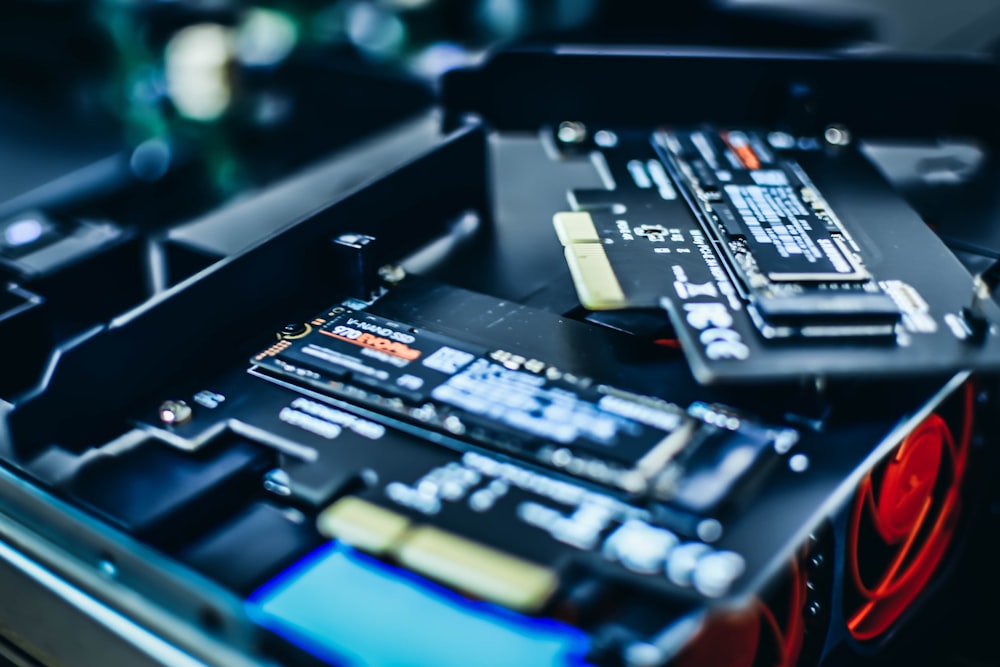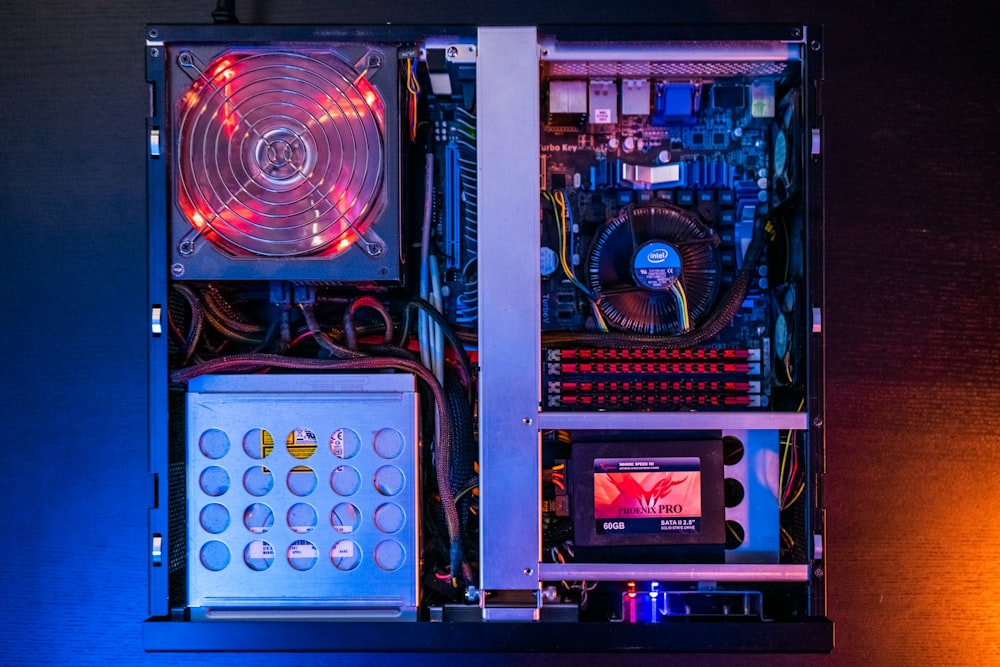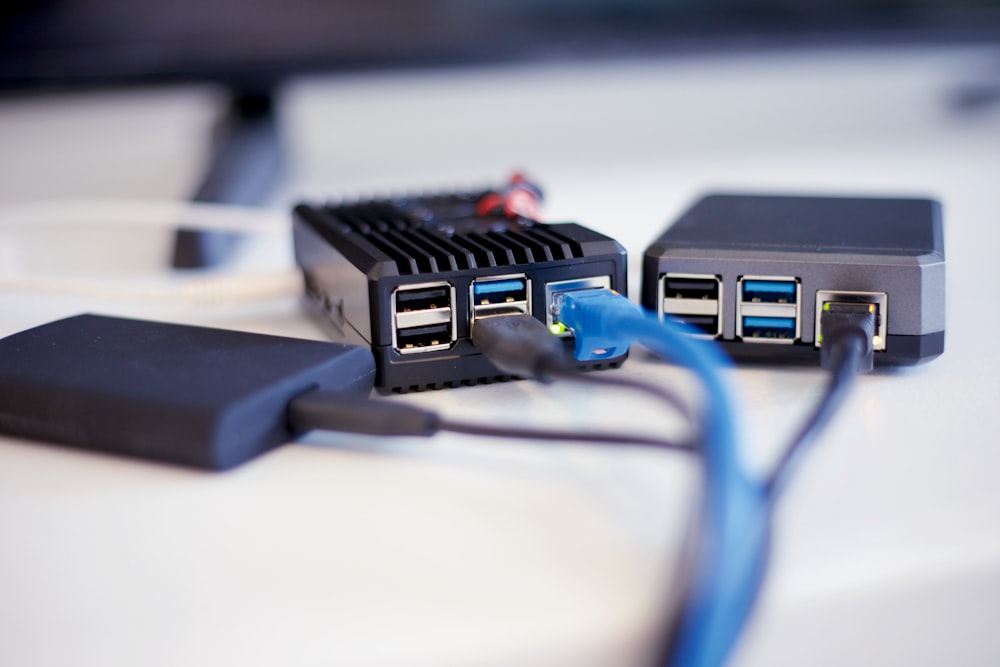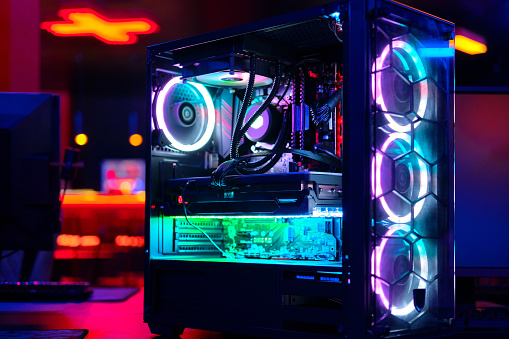In the past, SSDs were primarily used for their performance, high-capacity, and low-cost. These days, SSDs can play a role in your gaming experience as well. How Big Should My SSD Be For Gaming?
If you’re only playing a few games frequently, but they take up a lot of space, you’ll probably want a 256GB or 512GB drive. If you have lots of games installed but rarely play them, 128GB will work just fine. If you don’t care about how much space is available on your SSD and just want the fastest possible speeds available at a lower price point, go with 128GB.
SSDs are the best way to bring an SSD-like experience to a mechanical drive. If you’re looking to upgrade your gaming rig to a much more modern, powerful, and fast system, an SSD can help you get there faster.
This is the best time to upgrade your system to an SSD. They are cheap, lightweight, and have enough storage to meet the needs of most gamers. However, upgrading to an SSD isn’t always a simple process. If you’re not sure how big your system’s SSD should be, this article is for you.
Related Article: How Much Storage Do I Need for a Gaming PC?

What’s the Difference Between a Solid State Drive and a Hard Drive?
The most difficult part of upgrading to an SSD is determining the right size. Your storage needs will depend on the types of games you play and how much space they need. You can usually estimate your space needs by considering what kind of games you want to play, how many people will be playing them, and the video quality you want.
A hard drive is a mechanical device that stores data on a spinning disc. A solid-state drive (SSD) is an electronic device that stores data on silicon chips. This means that an SSD has no moving parts, which makes it more durable and less prone to failure than a hard drive.
A traditional hard drive has at least one read/write head that interacts with the spinning discs to read data from or write it to those discs; however, SSDs don’t have any moving parts. They store data through the use of transistors, which are microscopic electronic switches in a semiconductor material.

How do SSDs Work?
SSDs are made up of flash memory that stores your files. Basically, when you save a file and close it, the computer will save the file to the SSD and make space on the hard drive for new files.
As SSD will store data and files for long-term use in flash memory that can be accessed digitally. Therefore, SSDs store data in semiconductor chips, not magnetic media. This is unlike the HDDs which rely on moving parts or spinning disks to store the data or access it.
This process is called garbage collection. You’ll need to do this often with an SSD in order to keep your system running smoothly.
SSD Storage Capacity
The first thing you need to determine when deciding on the size of your SSD is how much storage you want. This will largely depend on what type of games you usually play.
SSDs are available in different sizes ranging from 120GB to 30.72TB. On the other hand, HDD storage can range from 250GB to 20TB but with new technology, the capacity is bound to increase for both.
If you’re someone who enjoys playing action-packed video games, then a larger SSD will be necessary for all those high-intensity games. But if you mostly play strategy games like “Civilization 6,” then a smaller SSD would work just fine.
Does a Gaming System Need an SSD?
If you’re looking to make your gaming rig more powerful and faster, an SSD is the best way to upgrade. But before you buy an SSD, it’s important to know how big of an SSD is needed for your system.
A lot of people are tempted to get a large-capacity SSD because they believe that a higher capacity equals higher performance. This isn’t always the case, though. If you want the fastest mechanical drive for gaming, then you should get a small-capacity SSD with high performance.
It’s also important to take the size of your games into account when buying an SSD.
If you have a lot of games and you like to keep them all on your system at once, then you might need a bigger-capacity SSD. For most gamers, though, it’s okay to have games stored on external storage like an external hard drive or cloud service.
Why Would You Want an SSD for Gaming?
There are many reasons why you would want an SSD for gaming. However, for starters, they are much more expensive than most HDD types of drives.
SSDs allow you to have a faster loading speed and higher read/write speeds. You can install the operating system on an SSD, which will give you a faster boot time, better response time, and less lag. Some people might not know that an SSD is also quieter than other hard drives.
An SSD has no moving parts and is less likely to crash because it doesn’t need to “seek” while reading data. This means it can be put under more stress before failing as long as it is taken care of properly.
How To Upgrade A Gaming PC To an SSD
Upgrading to an SSD is a great way to get your system running faster, but you need to know how big of an SSD to get. When upgrading your system, you want to make sure that you’re not going overboard. You don’t want your SSD to be too small, and you also don’t want it to be too large.
Your gaming rig will tell you the size of the drive in gigabytes (GB). This is usually listed as the total storage capacity at a value of 1 GB = 1,000 MB = 1,000,000 KB (1 kilobyte).
So if your gaming rig says 128 GB then that means it has 128,000 MB or 128 GB storage. The last thing you want is for your games and apps take up all of your storage space before they even start. So keep in mind how many games and how much data you have when deciding on how big your SSD should be for gaming.
How much storage capacity do you need in your SSD?
Storage capacity is an important factor in choosing your SSD. If you’re considering upgrading to an SSD, you need to consider the size of your current storage device and how much space it has left. If you don’t have enough space on your current storage device, then you need to choose a larger SSD.
If you do have enough space on your current storage device and just want more performance from your system, then it doesn’t matter how big the new SSD is, as long as it is bigger than what you currently have.
The difference between 120GB and 240GB won’t be noticeable when playing games–you’ll only notice the difference when copying files or loading large programs. For a gaming PC, you need at least 500GB of SSD storage.
If you want the best performance possible and don’t care about price, then a 512GB or 1TB SSD will be the best option for you. These sizes offer the most performance for gaming and allow for future upgrades down the line.
Is a 512GB SSD enough for gaming?
If you’re not sure how big your system’s SSD should be, here are some things to help you make a decision.
If you have a console with a 500GB hard drive for games, and it already has 30 games installed, then a 512GB SSD would be enough.
If you have a console with a 1TB hard drive for games, and it already has 50 games installed, then an SSD of 1TB would be necessary.
If you want to upgrade your gaming rig to an SSD, but don’t know how big the file size is, just install one AAA title game on your computer and see how much space it takes up. The average AAA title is 60GB.
Is 1TB enough for gaming 2021?
If you’re looking for a small upgrade that can make a big difference in your gaming, then upgrading to an SSD is the way to go. However, it’s not as easy as just picking up any SSD you want from the store.
You need to look at things like storage and speed when choosing an SSD. For example, if you have 1TB of games installed on your computer, then getting a 1TB SSD might be all you need.
But, if your computer is an older laptop with barely any storage, then you might need more space. And if you’re using this device solely for gaming, then speed is also something to consider.
In 2021, most people will want to get an SSD with 2TB of storage and read/write speeds of over 500 MB/s; but some gamers might want even more!
If you are the latter type of gamer and have enough money to spend on an “extreme” SSD, then these drives should offer read/write speeds of close to 5 GB/s. This technology is still improving every year so don’t worry about investing too much now because in 2021 these speeds will be outdated!
Best SSD for gaming in 2022
As technology advances, storage space is increasing and becoming cheaper. In the past, an SSD would be a lot more expensive for the amount of storage you would receive. Now, it’s not uncommon to find an SSD with 500GB or 1TB of space.
When deciding on how much data your gaming SSD should have, there are a few things to consider. How big are your games? What do most people play? What type of games will you be playing in 2022?
Our recommended SSD for your gaming PC is WD_BLACK 2TB SN850 SSD. The Internal Gaming SSD Solid State Drive has a heatsink to ensure there is no overheating. Moreover, the WD_BLACK 2TB SN850 SSD works with Playstation 5 and all types of gaming PCs. It offers up to 7,000 MB/s of read/write speed.
If you’re looking for the best gaming experience in 2022 and want to get the most out of your new gaming rig, you should look at getting a 1TB SSD or 2TB SSD. If you only play light games and don’t need a ton of storage because your games take up less than 200GB, then don’t worry about getting anything larger than 480GB or even 240GB.
However, if you like playing heavy-duty games like GTA V that require approximately 55-110+ GB of storage space and often have long loading times (due to their size), then it may be worth spending $300-$500 on a 1TB SSD with either SATA or PCIe connection ports.

How big of an SSD do I need for gaming pc
In the past, SSDs were primarily used for their performance, high capacity, and low cost. These days, SSDs can play a role in your gaming experience as well. SSDs are the best way to bring an SSD-like experience to a mechanical drive.
If you’re looking to upgrade your gaming rig to a much more modern, powerful, and fast system, an SSD can help you get there faster. This is the best time to upgrade your system to an SSD. They are cheap, lightweight, and have enough storage to meet the needs of most gamers.
However, upgrading to an SSD isn’t always a simple process. You can get a 500GB SSD for your gaming PC which will be enough for a couple of games and increase the processor speed of your PC.
SSDs are needed for games because they will speed up load times by storing all of your data on the laptop instead of using physical disks that need spinning in order to read from them.
Best internal SSD for gaming
Our recommended SSD for your gaming PC is WD_BLACK 2TB SN850 SSD. The Internal Gaming SSD Solid State Drive has a heatsink to ensure there is no overheating. Moreover, the WD_BLACK 2TB SN850 SSD works with Playstation 5 and all types of gaming PCs. It offers up to 7,000 MB/s of read/write speed.
The best way to figure out the size of an SSD that you need is to look at your current storage. If you have a lot of games and other files, you’ll want a larger SSD so that you’ll have enough room for everything. On the other hand, if you don’t have much storage on your current drive, it might be time for an upgrade.
The most popular size for gaming purposes is 1TB because it can hold almost every PC game available today. This is not the only option though. An SSD with 500GB would be good for gamers who don’t keep many games installed or play very few games at once.
If your computer has both an HDD and an SSD, it’s possible to install games on the HDD and keep everything else on the SSD by using a program called Steam Mover (available as a free download).
A small SSD isn’t necessarily bad though- there are some benefits to having one. For example, smaller volumes may be less likely to fail due to overuse than bigger volumes due to lack of use.
They also take up less space in your case and cost less on average than a large volume of storage would. It all depends on what will work best for your situation- do some research before making any decisions!

Fastest SSD for gaming
The best SSD for a gaming rig is one that is fast and affordable. If you’re on a budget, go with the Samsung 850 EVO. It is an affordable, high-performance gaming SSD. If you want something with more speed, but are also looking to spend more money, the Samsung 960 PRO is your best bet.
This type of SSD will give you lower latency and higher speeds than the 850 EVO and can be used in systems that need an M2 slot.
If you are wondering how big your system’s SSD should be, size it based on how much data you want to store on it. The more data you need to store, the larger your SSD needs to be. For gamers who typically only play one game at a time, a 250 GB SSD will do just fine (a standard gaming PC).
If you play multiple games or have a lot of multimedia files stored on your computer, then consider buying a 500 GB or 1 TB gaming SSD.
How big of an SSD do I need for gaming?
One of the most common questions for someone looking to upgrade their system to an SSD is “How big should my SSD be for gaming?” There are a few different factors that will affect the size that you need, including:
- How many games you have installed on your system?
- How often do you play each game?
- The size of your games
- The make and age of your system
Different gamers will want different levels of storage. There are four main sizes that people tend to use: 128GB, 256GB, 512GB, and 1TB.
If you have several games installed on your gaming machine, go for 1TB or 2 TB SSD. However, if your gaming PC has very few games, you can go for a 500GB SSD.
FAQS
What is an SSD?
An SSD or Solid-State Drive is a computer storage device that holds data on flash memory chips, as opposed to a hard drive that stores data on rotating discs.
How does an SSD work?
An SSD works by storing all the data in solid-state memory, unlike traditional hard drives which have spinning discs with moving parts. This means there’s no need for any moving parts and, as a result of this, they are less prone to physical damage when dropped and generate less heat than a traditional hard drive.
What are the advantages of an SSD over traditional hard drives?
The biggest advantage of an SSD is its price per gigabyte and its relative lack of latency time. Along with this, they have significantly faster read times which will lead to much better performance for your games. They also consume about 1/3rd the power of a regular spinning disc hard drive and produce almost no noise because there are no moving parts. Lastly, they use up less space since they are so lightweight and small compared to the size of the data stored on them.
What size SSD should I get for gaming?
The size of your SSD for gaming depends on two things: how much storage you think you will need and what type of games you will be playing. It’s a good idea to use your own personal needs as the benchmark. If you are not sure, there are many calculators that can help you figure out how big your system’s SSD should be. These calculators take into account the number of hours or days that a game takes to play, how much data it stores, and any other pertinent factors.
Conclusion
Bigger is always better. But the more storage capacity you need, the more expensive the SSD.
For a gaming system, a 1TB SSD is usually more than enough to store all the games and applications you need. If you can’t find a 512 GB SSD to fit your budget, a 256 GB SSD may be an option.
For the average gamer, a 512 GB SSD will be enough to store all the games and applications you need. 512GB SSDs are really cheap right now, so this may be a good time to invest in one if you’re in the market for one.
If you have the budget for it, having a 1 TB SSD would be nice because it would give you more room for games and other apps. But if the price is a major concern, there will always be a cheaper option for you. So don’t worry!
Citations
https://www.extremetech.com/extreme/210492-extremetech-explains-how-do-ssds-work
